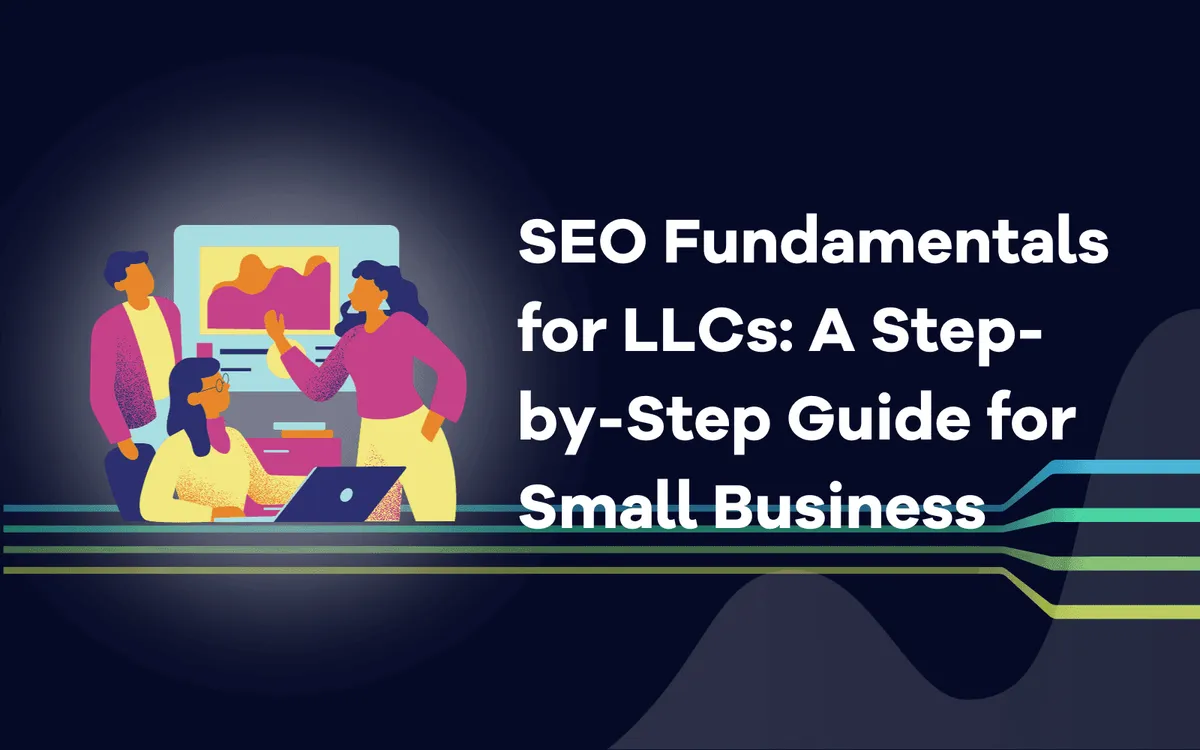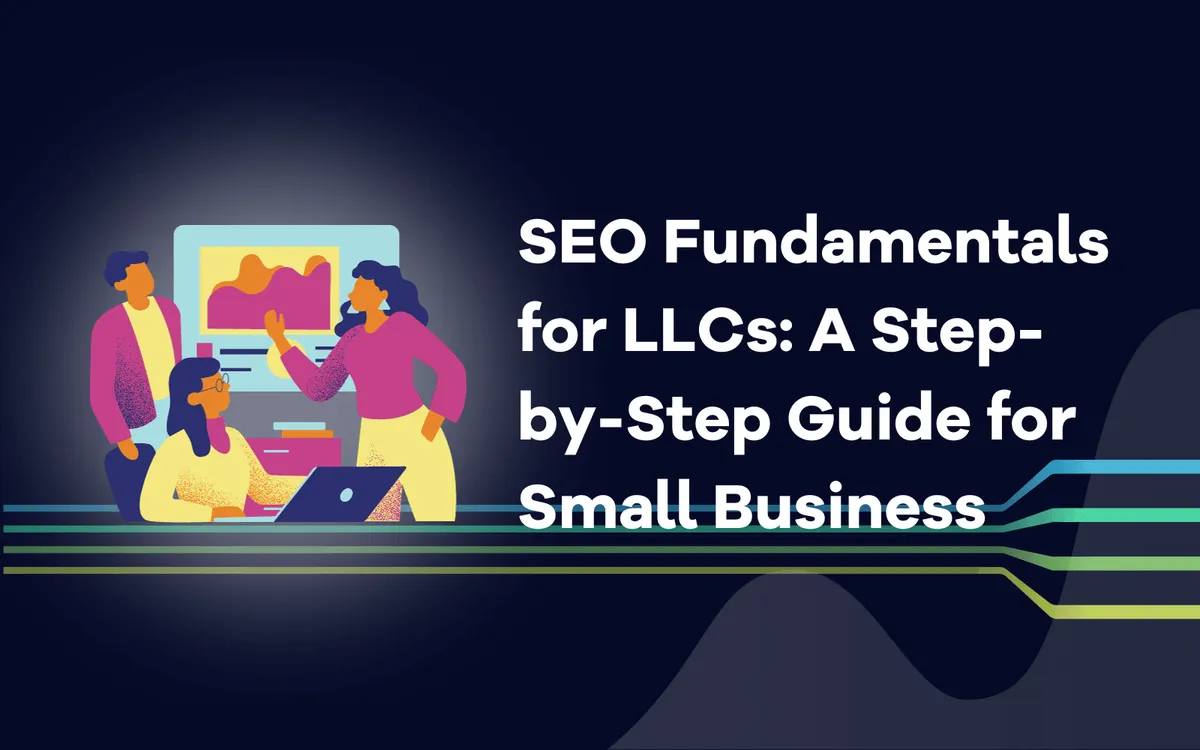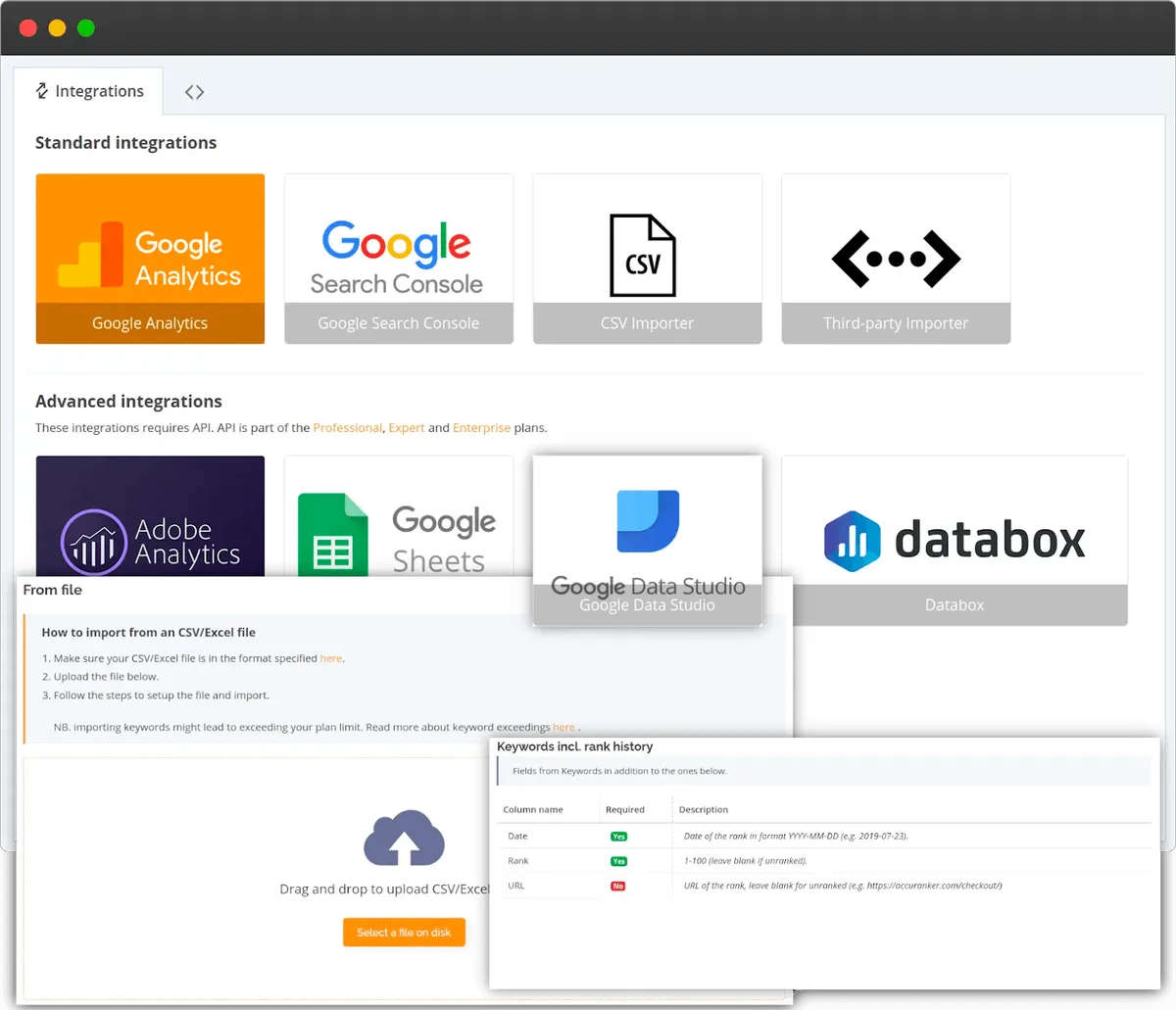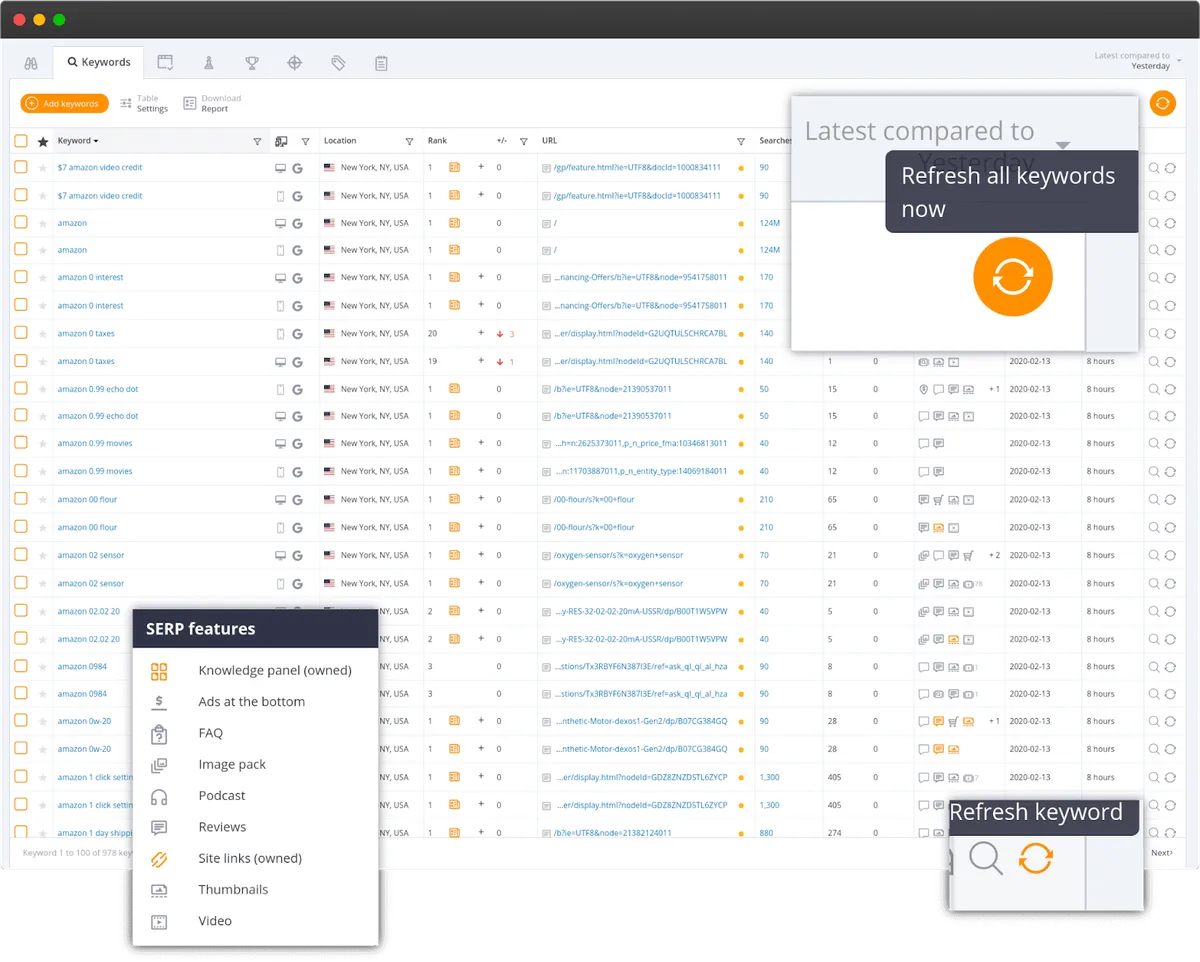
SEO Fundamentals for LLCs: A Step-by-Step Guide for Small Business

Amanda E. Clark
October 23, 2023
Master the essential SEO fundamentals tailored for small businesses with this step-by-step guide, and supercharge your LLC's online visibility and success.

When you launch a small business, you’re naturally excited about telling everyone about your unique products and services. One of the best ways to promote your value proposition, and to draw potential customers, is through a laser focus on search engine optimization (SEO).
SEO refers to a portfolio of skills and practices that make your website more visible to search engine users, and more “discoverable” to members of your target audience, in particular. SEO alone may not be sufficient for establishing a digital presence, but it’s an essential addition to any media mix, along with paid ads, social media, and more.
The problem is, SEO can be incredibly technical, and its rules are subject to ongoing change and evolution. As such, it may be tough for any small business or LLC owner to keep pace. While hiring a pro can be beneficial, there are also some simple steps that can set you in the right direction.
SEO for LLCs: Best Practices & Fundamentals
Consider a few SEO best practices that can work well for any small business or LLC. Note: An LLC is simply a small business designation that involves one or more members, is registered with the state, and has an appointed Registered Agent to handle business and tax documents. (Related question: Should I be my own registered agent for an LLC?) As such, LLCs have the same SEO needs as any small business, including:
1) Set the right goals.
As you establish a regular SEO practice, you’ll want to continually measure and assess your progress. As such, you’ll need to define a set of specific and measurable goals. There are a number of objectives you can set with your SEO efforts, along with clearly defined metrics for each one. For instance:
You can set a goal to improve visibility, as measured by search ranking for a particular keyword.
You can set a goal to increase traffic by a certain amount.
You can aim to boost sales, as measured by conversion rate.
Before you do anything else, think about how you’ll define SEO success. Your SEO goals should always be tied to increasing your revenue.

2) Configure your analytics tools.
To measure progress toward your goals, you’ll need to link your website to specific data, analytics, and reporting tools. There are a couple of good ones that every LLC should use: Google Analytics (more specifically, Google Analytics 4, or GA4), and Google Search Console. Both are free, both are easy to use, and both provide useful data points you can use to fine-tune your SEO efforts. On top you can integrate those analytics tools with our very own Accuranker keyword rank tracker.

3) Claim your Google Business Profile.
Speaking of free tools made available by Google, also be sure you claim your Google Business Profile if you run a local business. This ensures that, when someone conducts a search for your business, they’ll be greeted with clear contact information, hours of operation, and other key details. Google also provides you with plenty of control to highlight special promotions, to manage online reviews, and to upload relevant images… all of which bolsters your SEO visibility.
4) Do keyword research.
Keywords are essential to SEO. They represent the terms and phrases that consumers use when seeking information about your products and services, and they also help the search algorithms to properly classify your content.
There are a number of types of keywords to consider. For example:
Branded keywords are the ones tied to your business name or to a specific product that only you offer; think Pizza Hut, Verizon, or Big Mac.
Short-tail keywords are usually just one or two words, and represent broad fields of inquiry. “LLC” or “small business” are two keywords that an aspiring entrepreneur might employ.
Long-tail keywords represent more specific inquiries, often posed via voice search and taking the form of a question. Examples: “How to start a small business,” “best Registered Agents in Nevada.”
There are plenty of places you can brainstorm keywords, including your own Google Analytics reporting, your current website content, Google Autocomplete, and competitor websites. The Google Keyword Search tool is also invaluable.
Create a bank of keywords you can use to structure your content, to seed into your Google Business Profile, and more.
5) Make a list of competitors.
Remember that SEO doesn’t happen in a vacuum. You want your site to rank well, which means you want it to rank higher than competitor sites. After all, a higher placement on the Google Search Engine Results Page (SERP) likely leads to more opportunities to attract and convert customers.
To that end, it’s smart to maintain a list of major competitors, and to regularly check in on their content. Analyze what keywords they seem to be using, what kinds of content they create, and what works and doesn’t work about their site. This can all be important fodder for your own SEO endeavors.
6) Review your site architecture.
Your website architecture refers to the basic hierarchy, or classification between pages. A clean, elegant, and intuitive architecture makes it easy for users to find the information they want. It also makes it easier for the search algorithms to crawl and index your content.
As a rule of thumb, simple architectures are better. It should never take more than three total clicks for a user to find the content they need. Review your architecture, and if it’s too complicated, take some time to revisit it with your site developer.
7) Make sure you have metadata.
When we talk about metadata, we’re referring to the SEO title and the meta description assigned to each page. Metadata is important for conveying to users and to search algorithms what your site is about. The SEO title plays an important role in the ranking criteria. While the meta description doesn’t affect ranking it does help improve the click through rate.
Make sure you have metadata for each page that is:
Accurate and relevant to what the content is really about.
Enriched with keywords (when possible).
Original (meaning not duplicated from page to page).
8) Optimize your on-page elements.
There is much that you can do to improve the content on each page, ensuring it’s optimized for the best possible search engine visibility. Some specific tips include:
Make your content easy to read by breaking the content into headings and subheadings.
Work keywords into your headings, subheadings, and body content, whenever you can do so in a natural and unforced way.
Ensure that each page has relevant and readable content designed to address a specific user query, need, or pain point.
9) Double check your site performance
User experience and SEO are closely linked. When users find the site easy to access, navigate, and use, it tends to help your rankings.
There are a couple of specific points to consider here:
Site speed matters! If your site takes more than three or four seconds to load, you’ll likely lose visitors. Test your site on multiple browsers and devices to ensure it performs as it’s supposed to.
It’s also critical to ensure a mobile-friendly design. Again, check the site on multiple browser and device types to be sure that it looks good and is easy to navigate.
10) Ensure regular content updates.
The search algorithms tend to reward websites that regularly provide users with fresh, relevant content. Starting a blog for your business or LLC, offering specific answers to common questions or user pain points, is a great way to provide it. It can also be helpful to schedule an annual content audit, taking time to review your entire site and to revise content as needed.
11) Seek backlinks.
SEO is about what you do on your site, but it’s also about activity on other sites. Specifically, you need other people linking to you, signaling to the algorithms that you’re offering content that’s of value. Some ways to seek backlinks include:
Sign up for listings in local or industry-specific directories.
Foster good working relationships with other businesses in town, maybe even including referral links in your own content.
Write blog posts good enough that others will want to promote them.
Use a free service like HARO where you can get quoted in top publications.
Caution: Services that allow you to buy up big bundles of backlinks never work out in the long run, as Google will eventually find out and penalize you. Avoid these too-good-to-be-true offers whenever you see them.
12) Encourage reviews.
When users submit reviews of your business, particularly on your Google Business Profile, it can weigh heavily on your local search rankings. Make sure you’re direct in asking customers to spend a moment offering their feedback. And as reviews do trickle in, take a few minutes to respond to them, flexing your customer service muscles.
13) Create plenty of internal links.
Backlinks certainly matter, but internal linking is another important tool in your SEO toolbox. There are plenty of ways you can incorporate links throughout your content. Here are just a couple:
Have any relevant blog posts linked to your service or product pages.
The best practice for internal links is that you should add them within the context of the surrounding text on a relevant page.
14) Keep an eye on your metrics.
Remember that SEO isn’t a one-time thing, but an ongoing activity. By monitoring your search rankings and keeping an eye on your analytics, you can get a good sense of how well your efforts are working, while also identifying areas to troubleshoot or correct.
For LLCs, SEO is a Foremost Concern
Search engine visibility can be make-or-break for any business. It’s not something that happens by accident. Instead, it requires a strategic, ongoing investment in carefully-executed SEO activity.
Related blog posts

5 LLM Visibility Metrics You Should Track in 2026
SEO is now both about ranking in search engines and being visible in LLMs. We give you five visibility metrics every SEO should track in 2026.
3 December 2025Is LLM Tracking Relevant for You?
LLM tracking is not just for SEOs. It is also relevant for content teams, agencies, marketing leadership, and communication teams. Learn why here.
26 November 2025
How to Find the Best Prompts to Track for AI Visibility
Do you want to start tracking prompts to optimize your AI visibility? We give you seven practical ways to identify relevant prompts to track in LLMs.
9 November 2025
